|
Section
0401 |
|
|
November
2011 (Volume
61 - Issue 9) |
|
Our
objective: To increase awareness,
interest, and involvement in Section activities and |
| 10 - Sustaining Members | ||
| 17 - Unemployed Member Dues | ||
| 6 - Voice Of The Customer | 12 - ASQ News | 18 - Feedback/Advertising Rates |
1.
Next
Event
Date Wednesday, November 16, 2011 Time
6:00 PM Place Sheraton Montreal Airport Hotel What
Makes People Perform?
Mr. Eric
Stern ASQ Senior Member CQA, Publicity co-chair ************************************** If you work in the quality field
you must have noticed that quality
depends not only on the structures
that the organization sets up, but also on the contribution of
individuals. In your personal life, you may have been in situations
when the results you produced where different from expectations. If you
get just one good idea directly from this presentation, the ensuing
discussions, or the references given, you may move towards reaching
that goal.
|
2.
Ad
/
Publicité
|
||||||||||||||||||||
|
Based on decades of personal
experience and the opinions of experts, Eric Stern will present his
views about critical aspects of what makes people perform. He will
focus especially on factors that motivate people to choose certain
behaviours. Assessments will be described as shortcut tools to get insight into the multitude of reasons why people choose certain actions. Coaching that enhances the capabilities of people will be presented as one of the important tools that improves their performance. Eric believes that optimal performance depends on aligning the motivational spectrum of people with the activities they perform. The systems and structures that support this alignment along the goals of an organization are the other key contributors to performance. |
|||||||||||||||||||||
|
In his early years, Eric Stern just loved to sing and smile. He kept family and neighbors sane while bombs and others took the innocent away. A strong need for achievement and possibly an above-average IQ had him excel in elementary school. As competition grew, fear of failure became a principal motivator. The chemical engineer father created an environment that facilitated experimentation and supported his curiosity; young Eric got his MSc in chemistry from Bucharest University (after a stint at the Humboldt Universität zu Berlin). Grudgingly he committed to the routine task of testing plastics, but found opportunities to publish articles on some of the more interesting aspects of those tests. He learned to hold his tongue when the authoritative political conditions and later family business conditions so required, reducing voluntarily the expression of his desire for power. Routine operations in South America gave him the opportunity to sharpen his technical skills and propose innovative solutions while adding another language to his repertoire. In Montreal he soon started work as a R&D chemist, happy in an innovative environment, contributing to several patents and commercial products. Quality was important, so he developed performance standards, some of which made their way into ASTM and CGSB standards. He took a MBA at Concordia University and further improved his analytical skills and knowledge of statistics. During this time, he paid little attention to organizational politics and to the quality of relationships; he paid dearly for that. Serendipity and the desire to learn about his functioning as a person put him through Landmark Education classes. He was asked to coach the next generation of students, especially in their ability to communicate. His analytical skills and his perseverance served him well to start developing coaching skills. His clients reported increased clarity in understanding problems, access to new perspectives, increased effectiveness at work and in relationships. At about the same time, as an independent consultant he learned ISO 9000, got his CQA through ASQ and started implementing, maintaining and upgrading quality systems in a large variety of industries. Curiosity and patience serve well both types of activities. ISO 17025 for testing laboratories is another evidence based tool for assuring performance and competence; he participated in assessments and implementations. Attention to details and understanding or interactions is important here. As a counterbalancing act to his previous isolation from the world, he began to contribute to professional organizations: in addition to ASQ, local branches of SPE, Concordia Alumni, RIE, where opportunities to step beyond his natural introversion. A weekend walking group serves similar goals, in addition to the health benefits. He rarely sought acceptance by others, but was happy to receive it. Since 2004 he has taken a number of coaching classes at the virtual Leadership University and has contributed to facilitating coaching practices, the most effective way of learning coaching. He has learned the value of assessments including MBTI, DISC, PIAV and has been qualified to review Reiss “strivings” and iWAM assessments. ****************************************************
Cost:
ASQ
Members ($40),
Non-Members ($50)
Supper
and
Parking are included.
Bring
your business cards and be ready to
network! To
register for any event or for more information on events please
contact:
Sukhvinder Jutla Tel: (450) 647-8092 E-mail: Sukhvinder.Jutla@pwc.ca or Mitchell Daudier Tel: (450) 647-7830 E-mail: treasurer@asqmontreal.qc.ca 3. The Editor's Corner
If you read my October entry to this corner, you'll know that I was unable to edit that Newsletter due to what I called at the time "synchronous events". One of those events happened to be a pretty severe car accident, which fortunately left me unharmed but unfortunately resulted in my car being declared a total loss. I actually didn't need any insurance person to tell me it was a total loss: one look at the car seconds after the accident was enough for me to know, it was that bad. And so began the arduous and never fun task of dealing with insurance companies, as well as purchasing a new car. But what made the whole experience tolerable was the fact that throughout, the quality of the customer service I received exceeded my expectations. Purchasing a new car is usually not arduous or boring, but given the circumstances for the purchase, there was a black cloud over the proceedings. However, as has always been the case, my local Toyota dealership helped me tremendously in choosing the right new car and giving me a good deal on it. Anyone who reads these Newsletters regularly knows that I am quite loyal to Toyota, and I believe that the quality issues of the recent past have actually helped them improve not just their product, but also their customer service practices. I definitely felt like I was treated better compared to 7 years earlier when I purchased my previous car (the one that end up being a total loss!). Insurance companies are, of course, easy targets when people need to bitch against "the system". But to my surprise, everyone with whom I dealt with along the way seemed to be doing their utmost to try and make this difficult experience easier on me: calls were returned promptly, documents were received without fail and even the settlement was to my liking! Again, the quality of the customer service exceeded my expectations. And isn't that what we should always strive for? It's hard to be perfect, impossible in fact. But whether your customer is your boss, the purchaser of your product or your spouse, the effort one puts into providing a better than expected service will more often than not pay off in the end, in my opinion. So always strive to give the best quality service to your customers. Hey, if an insurance company can do it . . . |
|||||||||||||||||||||
4.
A Word
from
your Section Chair
November 2011: World Quality Month “In Pursuit of Excellence” In November 2010, ASQ joined the world’s quality organizations in observing World Quality Month. If you have been with ASQ for more than a year, you will remember that in Canada and in the United States, October has traditionally been National Quality Month and the rest of the world observed a World Quality Day in November. ASQ has joined the world and had moved ASQ’s observance to November. This year, the theme selected by the Chartered Quality Institute is “In Pursuit of Excellence” in recognition of the fact that, in order to succeed, organizations must continuously strive to improve. To celebrate World Quality Month, ASQ offer you the opportunity to share your passion for quality by giving the gift of an ASQ membership. You have until November 30, 2011 to give your friend a six-month membership. There are only 5,000 available, so don't waste any time! Add a new voice to quality today! We hope that you will join us at our next event on November 16 and bring colleagues interested by Quality. Together, we shall celebrate this World Quality Month. |
|||||||||||||||||||||
5.
Had
You Come
to the
Last Event
By
Eric
Stern, ASQ Senior
Member, CQA,
Publicity co-chair
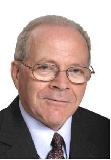 Had you come . . . Quality in Service Industry, Challenges and Opportunities Some
facts that I have found interesting in the presentation of Rajesh
Tiyagi on “Quality in Service Industry, Challenges and
Opportunities”:
-The page on service quality is the one most visited on the web site (I assume it is http://asq.org/service/body-of-knowledge/framework.html) - of course, since it is one of the industries that is not collapsing in North America and the science is relatively new, compared to almost a century of manufacturing quality development. -SSME, the IBM driven Service Science, Management and Engineering site on Wikipedia is an interesting starting point to delve on the subject. -SQBOK, the service quality book of knowledge, new University classes available at all levels. -Some counterintuitive solutions, like the need for barrista to be as inefficient as possible, in order to maintain the special aura of personal attention to customers. -Some key issues include the definition of service, its measurement, accessibility of six sigma, customer participation in coproduction, variability, implementation challenges, employee engagement and innovation vs. improvement. -The key role of employee satisfaction in providing customer satisfaction. -Customer related service variability, resulting in such measures as the total wait times to avoid talking to machines. -Choice of employees by matching them to the type of work required, e.g. production line, creative suggestions, job involvement. It is applied in banks, government and health care. -Service blueprint components with line of visibility from the customer. -Controls for balancing front and back rooms. -Appropriate concepts in service: innovate instead of improve; embed instead of control in DMAIC -> DMAIE; experience mapping from the point of view of the staff and the customer; Service scapes that include elements such as the color, music, feeling, cleanliness of the surroundings. -Typical measures include recognition, awards, employee satisfaction surveys, service errors compared to benchmarks, customer retention, return on human capital, ideas per employee, knowledge management. -The firing of some customers. -Versatility in reacting to customer variability. Some interesting examples were included: from the Hard Rock Hotel, UPS, South West Airlines, Philippines Airlines, the Six Sigma context, the “stats-free six sigma simple rules of thumb”, baggage handling. I found amazing the example of the New York restaurant that charges for the number of 30-minute slots and the Korean restaurant where customers cook their own food. For those interested in furthering their knowledge it is worth mentioning that Rajesh Tiyagi co-authored the “Service Scorecard” and “Six Sigma for Transaction and Services”. Eric Stern, CQA, senior member, publicity co-chair, developmental coach and consultant at Expertech CMSC, expressing his own opinions. ericst@iseffective.com For
networking with local
quality professionals explore these groups: http://tech.groups.yahoo.com/group/Quality_Montreal/ http://www.linkedin.com/groups?gid=90170
|
|||||||||||||||||||||
6. Voice of the Customer
What should we do more of? Less of? Here are two more areas to share from our survey. Regarding "What should we start doing or be more active in?", responses included: • More help with the certification. • Publicize need of expertise of quality related employees within businesses by distributing Newsletters to key managers in chosen companies. Make quality a top issue like it used to be, when the issue was a HOT aspect with management. • Getting (more) involved with big corporations. • Create some kind of forum for quality managers from different companies & fields of expertise. This would be a good benchmark and we could exchange ideas. • Better integration of new members. I received the free invitation for the first event only 4 days in advance and received no answer to the first email I wrote. • Get more organizational sponsors. • Invite professionals abroad from different industries. • Engage more students. • Bring the level of awareness of importance of the certifications in Quality among the employers. • Contact members (at least senior ones) and offer them personal opportunities to their needs. • The student branch is an excellent initiative. So, in quick summary, publicizing/selling the value of Quality in companies, continuing our work with the Student Branch, networking with different backgrounds and experiences, supporting our members with services, etc. We apologize for missed e-mails but sometimes we do get into trouble with some of them that are treated as spam by our servers. Most of our Leadership Team make it a point to get back to you, so please don't let an e-mail go un-responded, i.e. there are plenty of other players on the team to network with. As for "What are we doing that you don’t really need or want?", now this one was also interesting. There were only three responses of content. Two of them indicated they did not see the need for us to provide ASQ certification support and the third one indicated "Golf tournament. I am not against it, but myself I don't play. Why not some billiard/snooker tournament? This would be a weatherproof activity." As for the first two responses, we understand not everyone sees the need and/or value in certification training but given we've been able to get individuals and organizations interested in making such an investment, and some of the comments from above, there's obviously a need out there so we'll continue serving it as best we can. As for the third remark, given I enjoy both pool and bowling, it motivates me to believe there might indeed be some merit in this feedback. We'll see how the Leadership Team likes the idea and what could be done to implement it! Thank you all for your feedback! 7. The
Interview Corner
By Kostya
PolinkevychIn
the June 2011 Newsletter, we ran our first "Interview Corner" with
interviewee Khaled Khattab. The next interview (with V.O.C.
Chair Raymond Dyer) is in the works, but unfortunately not complete as
of press time.
In the meantime, we present to you the full, uncut interview with Khaled Khattab. The version originally published in June 2011 had been edited, but it was decided recently that it would be good to present the full text. So here it is! ******************************************
Striving for Excellence and World Class Performance: an interview with Khaled Khattab. Improvement of business relationships/performance and customer service is a critical factor of success in our competitive world. Many companies and organizations are extremely interested in achieving the best possible results in that field. But many of them still struggle finding optimal ways in achieving their goals in terms of time, cost, quality and overall organizational performance. How to evaluate or measure the levels of performance? How to define the highest level of performance and how can we recognize it? To answer some of these questions, we interviewed Mr. Khaled Khattab who is a well known specialist in Business Excellence, and has vast experience in the implementation of the most successful performance improvement programs. 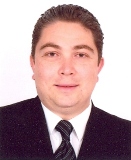 Kostya: Could you please tell our readers about yourself? Khaled: I am a private, SMEs and public sector development consultant with over fifteen years of experience implementing technical assistance and training programs focused on capacity building and organizational excellence primarily on USAID-funded initiatives. During my career with the International Executive Service Corps (IESC), I spent over eight years in Egypt managing the delivery of multiple technical assistance projects to various firms, associations, NGOs and other public institutions. I’m the founder & President of Benchmarking For Excellence www.benchmarkingforexcellence.ca I’m also a Research Assistant at HEC Montreal with a focus on Innovation management, TQM and Business Excellence. I worked before in different senior capacities over five years with the Government of Dubai and the private Executive Office of His Highness the ruler of Dubai on multiple high level projects like the assessment of the Dubai Government Public Services provision as well as a Leadership and Organizational Excellence development program in cooperation with the European Foundation for Quality Management (EFQM), Ashridge Business School and London Business School. I was also responsible for developing all Organizational Excellence Strategies for Dubai Holding, one of the world’s most diversified conglomerates and for the overall design and management of the organization’s Excellence Award and International Benchmarking Programs, which were a true success story within EFQM and Dubai. I’m a Senior member of the American Society for Quality (ASQ), Board member and Awards Chair of ASQ Montreal section 0401 and a member of the Canadian Public Sector Quality Association. I hold a Master’s degree in Quality Management and a Bachelor’s degree in Business Administration and International Commerce. I’m also a Certified Assessor for the European Foundation for Quality Management (EFQM) Excellence Model, a Certified Auditor for QMS ISO 9001 and EMS ISO 14001 and a registered Speaker with Dubai School of Government, the leading School in the Middle East in Cooperation with Harvard Kennedy School of Government. Kostya: As an expert in Business Excellence, could you please, give our readers an idea about World Class Performance? Khaled: I believe World Class is a very elastic term and it has been widely used by lots of organizations worldwide. We continuously read in newspapers, magazines and advertisements that a company is a World Class company or a World Class performer or striving for World Class performance. But in reality we do not even know how to define World Class performance. That is why different frameworks for Business Excellence were put in place and they do exist worldwide. In Canada there is a framework (Framework for Organizational Excellence) which was developed by the National Quality Institute (NQI) in Toronto, and there is another one in Quebec developed by Le Mouvement Québécois de la Qualité (MQQ). The most famous one is Malcolm Baldrige framework in the USA and the European one developed by the European Foundation for Quality Management (EFQM). There is one in Australia, one in New Zealand, one in Japan and one in every European country and American State. All of them were created to help organizations regardless of their size, nature of business, public or private to achieve World Class Performance. Kostya: Could you please, give us more details about one of these models? Khaled: I have continuously worked with the EFQM model since the mid-90s. There are no significant differences between the frameworks I mentioned earlier. All of them share the same fundamental concepts of Excellence and all of them have the same objective: to help any organization to achieve World Class performance by satisfying all its stakeholders in a balanced way, which is never an easy task, as we all know. The beauty of these frameworks, specifically the EFQM one, is that if an organization takes this framework and manages itself by its criteria, it will definitely move bit-by-bit from good performance to great, from great to excellent and ultimately from excellent to world class performance. This is what we call the Journey to Excellence or the World Class Journey, because it takes time, dedication, and leadership commitment. It requires a constant vision by the organization’s leadership to use the criteria of the model in order to move forward and achieve the World Class status. The beauty of these frameworks is that they could give us, once they are used, qualitative and quantitative outputs. What I mean is that usually to judge whether an organization is a World Class performer or not, it has to go through an assessment using the criteria in the framework. By going through this assessment, we have two good outputs – we have the qualitative, with which the organization could determine its strength points and its areas for improvement. This is exactly like going to a doctor, putting someone in an MRI machine, and doing certain tests. After the tests, the person would know their strong points and where they need to improve. The second type of output is the quantitative one; which is in a form of a score, because, if we can’t measure where we stand, we won’t be able to improve. The other thing about these frameworks is it could give us a score out of a thousand points. Of course, it requires experienced, well-trained assessors to conduct such an assessment which takes days and numerous site visits, depending on number of sites the organization has. All the components or the criteria of these models ranging from leadership to people management, to strategic management, to customer management, process management and so forth, will be addressed during an assessment. At the end of the assessment, the report will be given to the organization with the two types of outputs as I mentioned. So we could say that these frameworks are used as diagnostic tools; very powerful and very beneficial to help an organization in order to know where it stands. Kostya: Could you please elaborate as to how these models are beneficial? Khaled: Let me give you an example of EFQM model. If we look at this model, we will see that it is divided into two parts: one is called the Enablers part; another part is called the Results part. Under the Enablers part we will find certain criteria under the following components: Leadership, People Management, Strategy Management and Formulation, Partnerships, and Processes, Product and Services of the organization. This is what we call the Five Enablers. Under the Results part we will have certain results for people, customer results, society results, and key performance results or key results. You can see it is pretty straightforward, has a very logical thinking and uses common sense. If the company is doing well in managing its enablers, then theoretically speaking, it should get good, excellent and, ultimately, World Class results under the Results part. How the model functions and how it is used, and the benefits of the continuous assessment is what helps the organizations to move forward. The most important thing is the assessment. It is very comprehensive, very systematic, as it addresses all organizational activities and results against the model’s framework of Excellence. Definitely, it is not an audit, because it stays at the macro-strategic level of the organization. In another word it is like snorkeling but also incorporates some scuba-diving as well. Also, the output of the assessment using the model never tells the organization WHAT it should do but focuses on where it has to focus and improve. It is only an eye-opener, only a “temperature check”, and the report would only answer what the organization has, what are the gaps, or what are the areas that an organization has to focus on in order to improve and move forward. It is not a test in catching people out, it is the way of identifying where the areas of strength are and where the areas of improvements are. This is the main goal of using the EFQM Excellence model. Kostya: What concepts are these models built on? Khaled: All the models or frameworks I talked about at the beginning are built on Fundamental Concepts of Excellence. All models share them, and all models are related to satisfying all stakeholders in a balanced way. These concepts of Excellence are achieving balanced results, adding value for customers, leading with vision, inspiration and integrity, managing by processes, succeeding through people, nurturing creativity and innovation, building partnerships, and, finally, taking the responsibility for the sustainable future. Kostya: How this model accounts for the human factor, deals with people? Khaled: As I mentioned, on the Enablers side of EFQM model we would find, for example, one of the criteria is People Management criteria. If we dig deeper into this criterion, we would find that it is tackling all aspects of people management in any organization. I can give you an example for that. The model is tackling how people resources are planned, managed and improved, how human resource policies, strategies, and plans are developed, how the company is involving its employees in developing HR policies, strategies and plans, how the company is using people satisfaction surveys and other forms of employee feedback to improve HR policies and strategies. There is another aspect of these criteria, for example, regarding people’s knowledge. We all know that we live in a knowledge economy era. Thus the development of people knowledge and competencies is very, very important. For example: how the company is identifying, classifying, and matching people knowledge and competencies with its needs, how the company is developing people through work experience, how the company is reviewing and updating individual and team objectives. And another part is related to people involvement and empowerment. How are people encouraged, supported to participate in team’s regarding improvement activities, how are people encouraged to work together in teams? How is the company providing the opportunities that stimulates involvement and supports innovative and creative behavior in the organization? Another example is the communication with the people: how the company is communicating regularly with the people; the style of communication, how the company is identifying its communication needs, or identifying and ensuring the opportunities to share best practices and knowledge. And lastly, under the people management criteria, comes the reward of people, how people are rewarded, and recognized and cared for. How the company is aligning remuneration, redeployment, redundancy in other terms of employment with its strategy. How the company is providing the resources and services, how the company is promoting the awareness and involvement in, for example, health, safety and environmental issues and social responsibility and how it is recognizing its people in order to promote and sustain their involvement and empowerment. Kostya: How are the improvements measured? Khaled: Here I am going to talk about the core of using the model, how the model functions. The model functions through an assessment tool. And this tool is called RADAR. It is called RADAR because when it is used, it is looking for the information regarding: R – results, A – approach, D – deployment, A – assessment, and, finally R stands for a review. Here comes the word RADAR. When we make an assessment, the first thing we look for is the first R – results. We want to know what kind of results the company achieved in terms of its customers, its people, society, its financial results, strategic objectives and so forth. So we pay very much attention to the results and we try to trace back and check what is called the causality between the results and Enablers. And when we take a look at Enablers, we do not look just at how the company is managing its people, is dealing with the customers, is managing by processes, for example: we want to know what kind of approaches exist in the organization, how are those approaches deployed, and how are those approaches after deployment are assessed to make sure that they are deployed in the right way, and finally, how they are reviewed for future improvement. So as you can see it is a continuous, PDCA cycle. We start with the results then we go to approaches, deployment, assessment, and review. This is the thermometer of the assessment tool of the model. While doing the assessment we definitely check the improvements. The first assessment is not easy, because during the first assessment all what we can collect is baseline data, baseline information, baseline results. But, if we make assessment every year, for example, or every six month, we can compare the improvements that are happening. But during the first assessment all what we can do regarding tracking the improvement or measuring the improvements is the comparing the results with the objectives set in the organization. However, usually when an organization embarks on this Journey to Excellence or World Class Journey it does not use the model one time; it is a long term journey that requires the vision and, maybe, 10 or 20 assessments till the company keeps improving. Every time the company goes to assessment it will discover new areas for improvement and so forth. Kostya: Can you give us an example of a successful implementation of this model? Khaled: I have been personally involved with the benchmarking since the mid-nineties. I have a personal interest in benchmarking because the organization that chooses to be on this journey has to continuously benchmark its activities, its performances, its improvements, its objectives, its processes with other organizations, preferably the best in class. As we all know there are different types of benchmarking: best practice to best practice, or process to process, strategic initiative to strategic initiative. What I was focused on mainly over the past seven years, was benchmarking with the companies that have used this model. I managed to take a group from other countries like Dubai, for example, on benchmarking expeditions to European organizations like BMW, TNT, Philips and Siemens. And all these companies have been using the model for years. However, during these visits we have witnessed a variety of best practices, we have seen different excellence strategies, and companies on different stages of the Journey to Excellence. And from each one we have learned something special. One of the companies that really impressed me is TNT, because TNT itself as the business model is a success story. What really attracted our attention was the people culture. I visited this company – TNT – in different places, in Germany, Netherlands, and in the UK and all of them had what we can call the Excellence DNA. This organization is really determined to move forward on this journey which is not easy at all, and the way they managed their people, by rewarding, recognizing and putting them into improvement teams, is really fantastic. This is a big multi-national company that is moving a huge number of parcels and boxes every day. They have their own fleet, they have their own pilots, they have their own control rooms. It is a very tough sector, they have big competitors. However, they are doing pretty well. In addition, every year in the European Excellence Award we find TNT offices. Either one in Germany, one in Netherlands, one in Hungary, one in the UK, is winning the award or gets certain recognition. The thing I forgot to mention is that usually these frameworks are used to reward the best performance of organizations in Europe, in Japan, in the US and Canada on annual basis. The EFQM model is used in Europe for European Quality Award which is handed annually to the best company, achieving the best results after going through an assessment by EFQM. It is an external independent assessment by EFQM well experienced and well trained assessors. And it is usually very prestigious event, and when it is taking place in France, for example, we will find the prime minister or one of the ministers handing over the award. So the fruit of the assessment is formulated into an award. Everything I just said is correct with regard to Canada and the US. Kostya: Thanks you very much for your experience and knowledge about Quality Frameworks you shared with our readers today. Khaled: Any time. I hope I helped your readers to understand the beauty of EFQM and the Journey to Excellence. ******************************************
Kahled is a Certified Assessor for the European Foundation for Quality Management (EFQM) Excellence Model, a Certified Auditor for QMS ISO 9001 and EMS ISO 14001. He is a Senior member of the American Society for Quality (ASQ) and a member of the Canadian Public Sector Quality Association. He is a Research Assistant at HEC Montreal focusing on Innovation management, TQM and Business Excellence. Khaled is also the Founder and President of Benchmarking For Excellence. As a reminder: if any readers would like to obtain additional information, please provide us your feedback (internet@asqmontreal.qc.ca), or contact Khaled Khattab (514) 654-4474 or khaledkhattab@yahoo.com. 8.
2011-12 Planned Events
Date, time, and location will be confirmed as we progress into the year. Most events are planned for Wednesday evenings and are held at the Sheraton Montreal Airport Hotel. Watch the Newsletter and our web site for further details.
Date Event What Makes People
Perform? Supply Chain Quality |
|||||||||||||||||||||
|
To register for any event of for more information on events please contact: Sukhvinder Jutla at (450) 647-8092 or e-mail at Sukhvinder.Jutla@pwc.ca.
|
|||||||||||||||||||||
9.
Welcome
to our New Members
October
2011
Ahmad Ataya Anastasia Champagne Jeremi Collin-Lewis Patrizia De Rubertis Guy Dumaine Hani Tomoum Nuha Zamzami |
|||||||||||||||||||||
10.
Sustaining
Members
ASQ Montreal Section thanks our Sustaining Members: |
|||||||||||||||||||||
11. Other
ASQ
Events
|
|||||||||||||||||||||
12. ASQ NewsDeadline
for Awards and Scholarships is November 30 World Quality Month
Website is Here! ASQ’s
Focus on the Customer Remembering
Robert Galvin and Steve Jobs |
|||||||||||||||||||||
13.
ASQ
Montreal Section Education Program 2011-2012
By
David
Tozer,
Ph.D., ASQ CQE and SSBB, Education & Audit Chair Having ASQ certification gives you an edge in the market and can significantly increase your income. ASQ Certification often leads to higher paying employment. The money invested in education and certification increases chances of finding employment quickly in the down sizing environment we live in. People who take the section sponsored refresher courses, and spend at least twice as much time as spent in the classroom on self study, have an 80%, or better, chance of passing the examination on the first attempt. Certified Quality Engineer Topics include: quality concepts, cost of quality, human resources, team formation and group dynamics, inspection, metrology, sampling, reliability, quality standards, quality audit, statistics, design of experiments, process improvement, liability, and modern management methods for improving quality. Certified Six Sigma Black Belt Topics include: quality concepts, cost of quality, enterprise wide deployment, business process management, project management, team formation and group dynamics, define, measure, analyze, improve, control, lean enterprise, statistics, design of experiments, and design for six sigma. Certified Six Sigma Green Belt Topics include: quality concepts, cost of quality, enterprise wide deployment, business process management, project management, team formation and group dynamics, define, measure, analyze, improve, control, and statistics. Certified Manager of Quality/Organizational Excellence Topics include: quality concepts, quality planning, customer focus, quality standards, project management, cost of quality, team formation and group dynamics, human resources and improvement.
Certified
Quality Auditor Topics
include: quality concepts,
team
formation and group dynamics, management responsibility, audit
objectives, audit preparation, audit conduct, audit reporting,
sampling, and basic statistics.
Certified Quality Inspector Topics include: quality concepts, team formation and group dynamics, geometry, metrology, reading drawings, mechanical processes, statistical process control, inspection, and sampling. Calendar and Registration Form Questions? In house courses, etc.: David Tozer: (514) 694-2830, davidtozer@qualitiqua.com
|
|||||||||||||||||||||
14.
Executive
Committee Meetings & Officers
Section Executive
Committee
(Leadership Team) Meetings are held at different locations, starting at
6 PM. The next regular meeting is tentatively scheduled for : January
11, 2012 Consult the List of Your Executive
for
2011-12 here |
|||||||||||||||||||||
15.
ASQ
Certification & Recertification
Deadline for December Certification Exams The
application deadline for the CQE, CQA, SSGB, CCT, CPGP, CQIA, CQPA, and
CSQE examinations is October 14. If you are interested in taking one of
these examinations, take a few minutes to sign up online.
Register for certification exams…
16. Upgrade Your Membership to Senior MemberGAIN RECOGNITION . . . ADVANCE TO SENIOR MEMBERWhy not demonstrate your professional growth and accomplishments in the quality profession by becoming an ASQ Senior Member. You will receive recognition from ASQ, additional benefits, and the opportunity of being nominated to the grade of Fellow Member, if you qualify. Go onto your profile at www.asq.org to complete the application on-line. You can also download the application from www.asq.org. Or you may phone 1-800-248-1946 and request that an application be mailed to you. Apply today either by phone or on-line and get the recognition and benefits you deserve. 17.
Unemployed Member Dues
Unemployed ASQ members receive a discount on their membership dues based on consecutive years of membership.
Eligibility Criteria
Benefits
NOTE: The following links require that you be logged into your account before you try to activate them. Download the 2010/2011 Unemployment
Program
Application (July 2010–June 2011 Membership Groups) (PDF, 78 KB) |
|||||||||||||||||||||
18.
Feedback
Please send us your comments about the ASQ Montreal Section 0401 E-Newsletter (topics, layout, length, etc.). Do you want to contribute an article (English or French) or a good idea? Contact us by e-mail. |
|
||||||||||||||||||||
Pass
it on
We invite you to forward this Newsletter to friends and colleagues who may be interested. |
|||||||||||||||||||||
|
The
ASQ
Montreal
Section 0401 Newsletter is prepared by and published for its members. How to
Opt Out. This
e-mail
is being sent in the course of normal Montreal Section
business
to the e-mail address of record. We are not responsible for forwarded
e-mails. If you no longer wish to receive e-mail communications from
the Montreal Section (your section) of ASQ, please visit your ASQ
account to unsubscribe or
reply to this message, indicating Opt
Out in the
e-mail body
and in the title. |
|||||||||||||||||||||

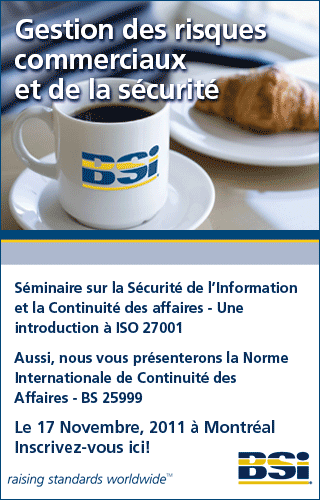
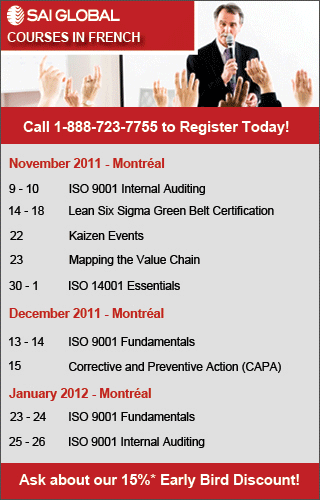
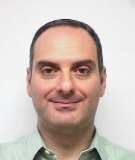
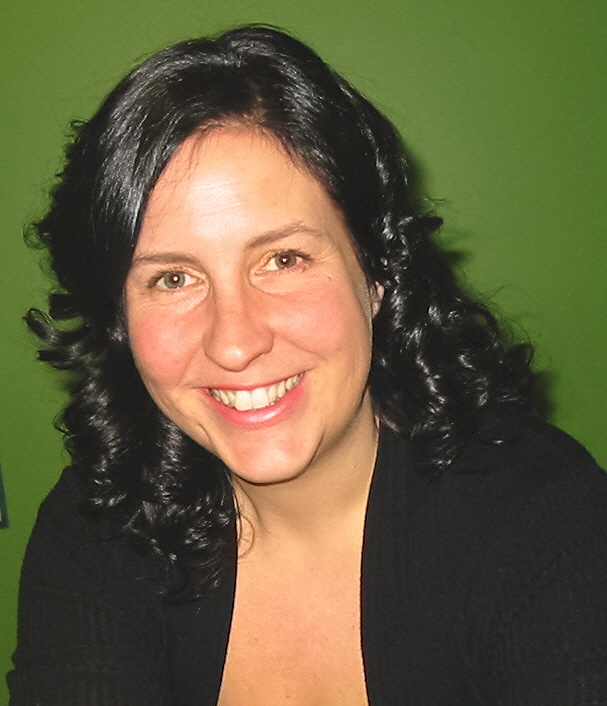
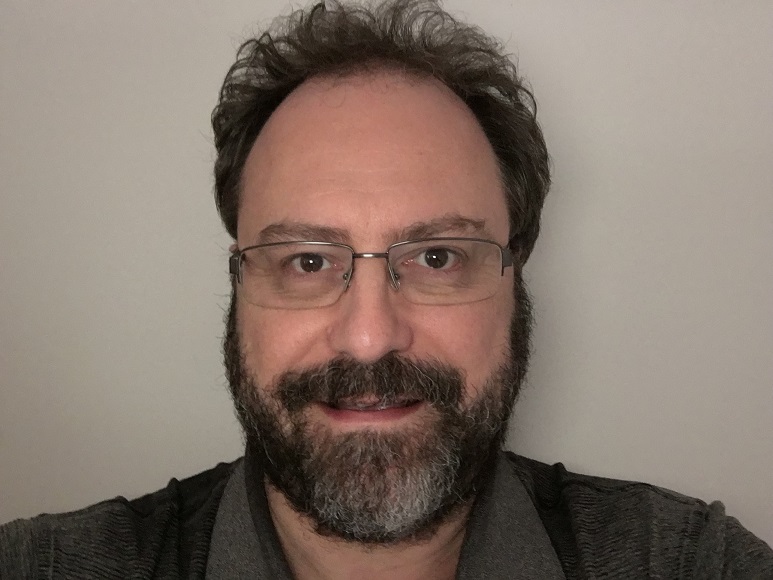
 By
Sukhvinder S. Jutla,
2011-12 Program
Chair
By
Sukhvinder S. Jutla,
2011-12 Program
Chair